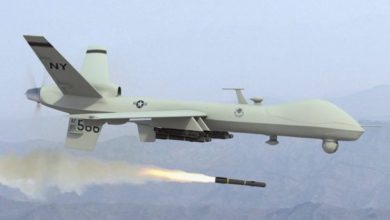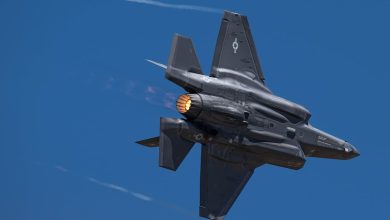Pentagon to identify next Replicator capability set this summer

TAMPA, Fla. — The Pentagon will decide later this summer what capabilities to focus on in the next round of Replicator, its push to quickly field high-need technology at scale.
The first phase of the effort, championed by Deputy Defense Secretary Kathleen Hicks, is focused on attritable drones and other uncrewed systems. The goal is to deliver thousands of these platforms by the summer of 2025, and in the 10 months since it was announced, the Pentagon has solicited and selected systems and started fielding them.
With the first round of Replicator in full swing, Hicks told C4ISRNET June 25 that the Defense Innovation Working Group — which vets and recommends systems for the effort — has been discussing what the next round, Replicator 2.0, will look like.
“We are beginning those discussions at my level,” she said during an interview at U.S. Central Command headquarters in Tampa, Fla. “They’re more mature at lower levels already. The DIWG are actively having conversations about 2.0. The fact that there’s a lot of enthusiasm for different potential capability areas just shows that there is buy-in to the value of the process.”
Hicks wouldn’t offer any insight into what specific capabilities the group is considering, but highlighted several attributes Defense Department leaders will factor into their decision. The systems should meet a near-term operational need, she said, and should be a capability that would benefit from senior leader backing.
“It’s not just happening on its own . . . it could benefit from this attention and focus at the senior level and probably across the enterprise,” Hicks said. “It’s that it’s senior and that it’s synchronized across multiple different areas that affect capability delivery.”
If the department identifies a capability that meets those criteria, it will work to include funding in its fiscal 2026 budget proposal, which the Pentagon will submit to the White House’s Office of Management and Budget in September.
“We would be proposing to include it in the ‘26 budget,” she said. “Of course, it’s the President’s budget, but that would be how we would envision including it.”
The Pentagon plans to spend a total of $1 billion on the first round of Replicator in fiscal years 2024 and 2025 with funds drawn from various sources including prior year appropriations, a reprogramming request, a national security supplemental approved in August and the department’s yet-to-be approved FY25 budget proposal.
The FY25 request didn’t include projections for future-year funding, but Hicks said the Pentagon will provide those to Congress as part of its FY26 request.
“We’re now inside the normal budget process, and so we will be able to put into the ‘26 budget and display for Congress how we plan to fund any follow-on Replicator efforts,” she said.
Hicks said she’s confident the Pentagon will meet its schedule and delivery targets for the first iteration of Replicator, noting that she thinks its performance to this point validates that the process is working.
“That is clearly bearing fruit in terms of the years we’re shaving off the timeline,” she said. “The ability to stick to schedule and cost itself is a significant improvement over what we too often see in the department.”
Courtney Albon is C4ISRNET’s space and emerging technology reporter. She has covered the U.S. military since 2012, with a focus on the Air Force and Space Force. She has reported on some of the Defense Department’s most significant acquisition, budget and policy challenges.







